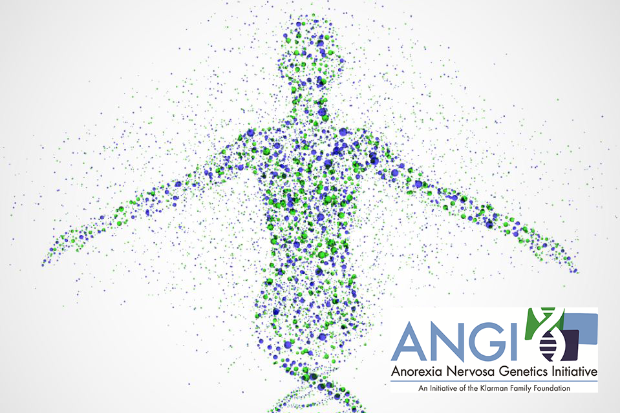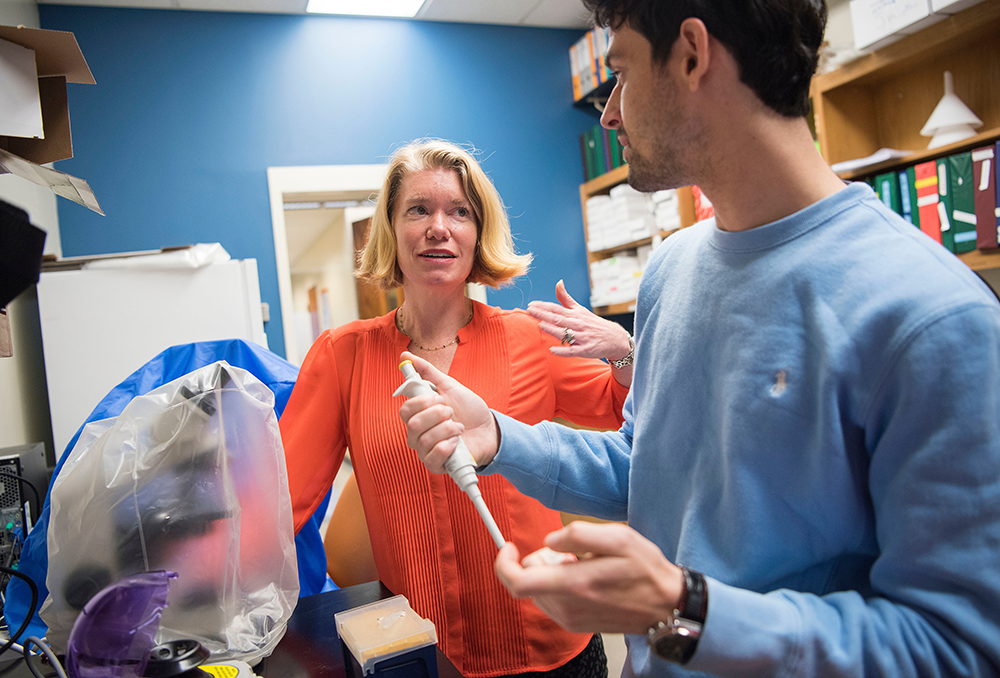On Tuesday, UNC’s School of Medicine is launching a nationwide study that will explore how genetics play an important role in eating disorders. This study comes at the heels of prior groundbreaking research that began back in 2013.
When it began, the Anorexia Nervosa Genetics Initiative was the largest and most rigorous genetic investigation of eating disorders. Since then, the initiative has revolutionized the way medical professionals think about – and potentially treat – Anorexia.
Clinical psychologist Dr. Cynthia Bulik is the Founding Director of UNC’s Center of Excellence for Eating Disorders, a Distinguished Professor of Eating Disorders and a Professor of Nutrition in the Gillings School of Global Public Health.
Bulik is also the lead investigator of the Anorexia Nervosa Genetics Initiative, or ANGI. AGNI represents a global effort to detect genetic variations that contribute to Anorexia. This research is critical as Anorexia nervosa has one of the highest mortality rates of any mental disorder, second only to opioid overdose.
In total, ANGI collected biological samples and clinical information from more than 17,000 individuals with Anorexia nervosa as well as 55,000 healthy controls who were matched by ancestry and geography. These samples were collected over the course of three years.
“From the blood sample we extracted people’s DNA and then we basically got a readout of the entire genome of every person who participated,” Bulik said. “Then we compared the genomes of those 17,000 people with Anorexia with the genomes of the 55,000 people who didn’t have Anorexia – and what a GWAS, or a Genome Wide Association Study lets you do is identify the areas on the genome that differ between the people with the illness and the people without the illness.”
ANGI ultimately identified eight areas within the human genome that differed between participants diagnosed with Anorexia and those without. These areas point to genes that may influence risk for Anorexia nervosa. Bulik said this is information that changes how medical professionals think about, and treat, the disorder.
“Right now, we have absolutely no medication that works in the treatment of Anorexia nervosa,” Bulik said. “We have no medications that are based on the underlying biology of Anorexia nervosa. So the hopes are that this research will allow us to identify pathways that we can then use to develop pharmacological agents, or medications, to actually treat the illness based on its underlying biology.”
Bulik said some of the genes identified were associated in other studies involving Body Mass Index, diabetes and other metabolic and autoimmune conditions. These findings indicate that Anorexia is what Bulik calls a metabo-psychiatric disorder.
“By looking not just through a psychiatric lens, but also through a metabolic lens, we might be able to both understand and treat this disorder more effectively – and change the way we think about it,” Bulik said.
According to ANAD, or Anorexia Nervosa and Associated Disorders, nine percent of the U.S. population, or nearly 30 million Americans, will have an eating disorder in their lifetime. Young people between the ages of 15 and 24 with Anorexia have 10 times the risk of dying compared to their same-aged peers.
Despite their prevalence, eating disorders like Anorexia are still vastly understudied. Bulik is working to change that.
“There are so many questions about Anorexia that people don’t understand,” Bulik said. “One of the main ones is ‘why is it that after we bring someone into the hospital and we re-nourish them, and we get their weight up to a healthy level, soon after they’re discharged from the hospital their weight starts dropping like a stone again? This can happen three, four, five times as a person goes through the course of their illness.”
Before ANGI, Bulik says, Anorexia was primarily viewed as a psychiatric illness, and treatment focused on components like the drive for thinness and fear of weight gain. However, she said eating disorders are much more complicated than that. Bulik describes Anorexia as an uphill battle against one’s own biology.
“Eating disorders are not a choice,” Bulik said. “They are serious, biologically-based mental illnesses and, from our data, also potentially metabolic illnesses.”
Now that researchers like Bulik have a strong foundation of information built up from ANGI, they are expanding this research to a new study called the Eating Disorders Genetics Initiative, or EDGI. EDGI will include people with Bulimia and Binge-Eating Disorder in the hopes of creating better treatment plans to, ultimately, save lives.
To learn more about the prevalence of eating disorders, to receive an evaluation or to be a part of the EDGI study, visit the Center of Excellence for Eating Disorders’ website.
Check out the last issue of “Addressing Taboo Topics” regarding Suicide Prevention Month here.
Have a taboo topic that you feel needs to be addressed? Send your ideas to elle@wchl.com.
Lead photo via UNC Chapel Hill.
Chapelboro.com does not charge subscription fees. You can support local journalism and our mission to serve the community. Contribute today – every single dollar matters.







Comments on Chapelboro are moderated according to our Community Guidelines